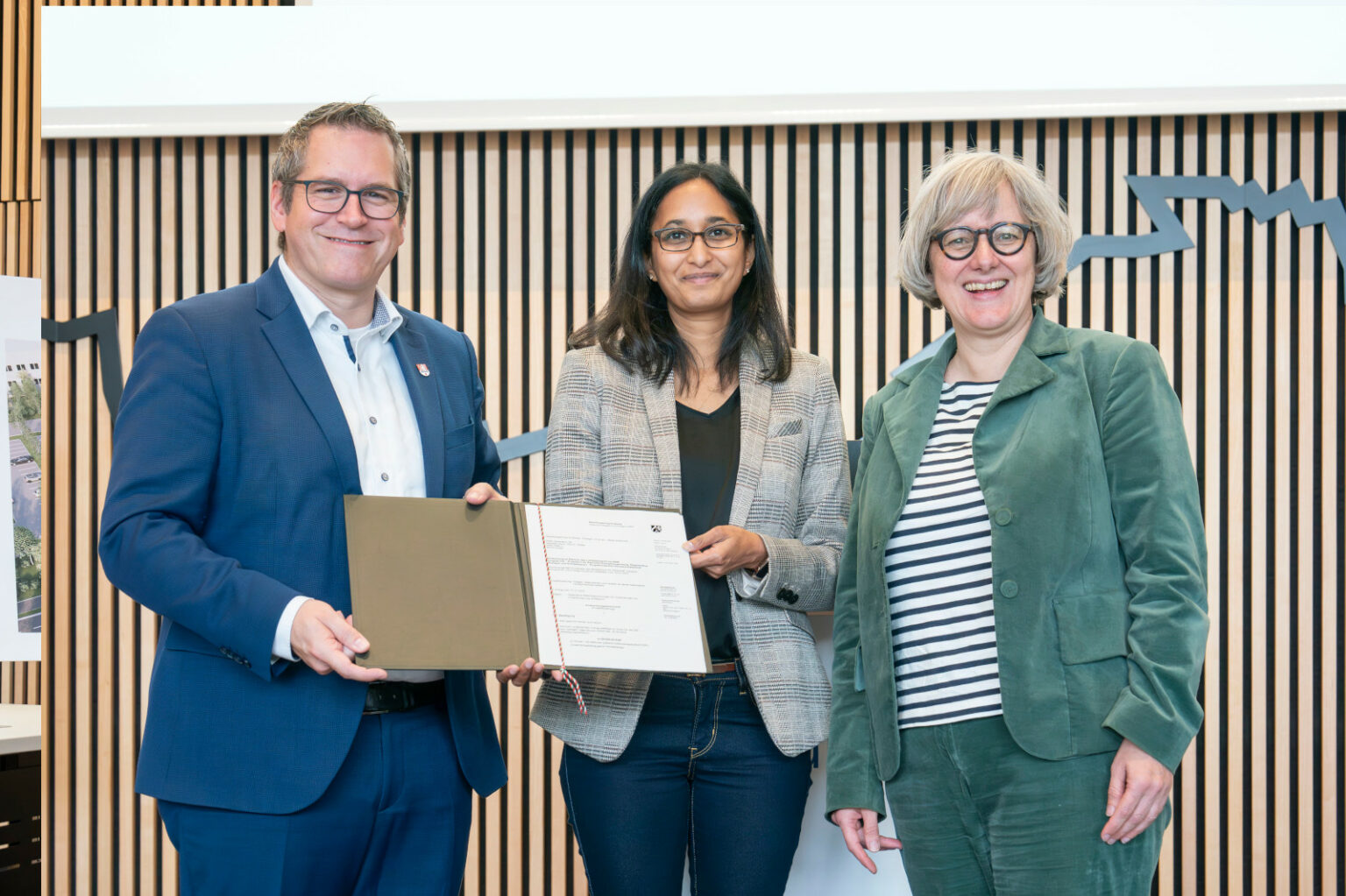RWE is advancing its green hydrogen ambitions with a €4.7 million funding commitment from the State of North Rhine-Westphalia (NRW).
The investment will pave the way for the construction of an electrolyser plant in the Rhenish town of Bedburg, with a planned capacity of approximately 5 megawatts (MW). The project is poised to be a crucial component of North Rhine-Westphalia’s journey towards becoming Europe’s first climate-neutral industrial region.
Silke Krebs, State Secretary at the Ministry for Economic Affairs, Industry, Climate Action, and Energy of the State of North Rhine-Westphalia, has conveyed the funding commitment to Sopna Sury, COO Hydrogen at RWE. The estimated total investment volume for the plant is around €25 million.
Sury highlighted the importance of green hydrogen produced by RWE, emphasizing how it can support local companies in transitioning from fossil fuels to locally generated green hydrogen, aligning with their climate goals. The funding commitment by NRW marks a significant first step towards the realization of the entire Bedburg project. Alongside the electrolyser plant, the project will include a filling station to enable the distribution of green hydrogen via road, especially in areas lacking established network structures.
Silke Krebs echoed the significance of hydrogen initiatives for North Rhine-Westphalia and the Rhenish Revier, emphasizing the critical role they play in the energy transformation of the region. The investment in hydrogen projects secures the economic future and jobs in the area.
Sascha Solbach, Mayor of Bedburg, described the funding commitment as a new chapter in the town’s energy development. By utilizing locally generated renewable energy, the project aims to offer local companies the opportunity to make their operations and production carbon-neutral and future-proof. This development also extends to mobility and transport, making it a regional catalyst for sustainable growth.
The chosen location for the electrolyser plant is the Mühlenerft Industrial Park in Bedburg, which aligns with local authorities’ plans for industrial development. This commitment to making the required area available for the project is a crucial step toward its realization.
A key requirement for the hydrogen project’s success is the establishment of long-term, economically viable purchase agreements with customers in the surrounding region. Logistics firms near the Mühlenerft Industrial Park and local public transport vehicles transitioning to green hydrogen are among the potential users of this green hydrogen.
Initially, Bedburg is not expected to be connected to the core hydrogen network planned by the German government. Therefore, green hydrogen produced at the electrolyser can only be distributed via tankers. RWE is preparing to build a tanker filling station and a hydrogen fuel station in Bedburg, contingent on successful participation in German government tenders for the expansion of hydrogen refueling infrastructure.
If all goes according to plan and the filling station receives approval swiftly, the entire plant could begin supplying hydrogen to the region by 2026. RWE’s holistic approach to hydrogen, combining green electricity production, expertise in green hydrogen production and storage, and a robust Supply & Trading business, positions it as a key player in over 30 hydrogen projects. As the world increasingly shifts towards clean energy solutions, RWE’s endeavors in green hydrogen are poised to make a lasting impact on the energy landscape.
